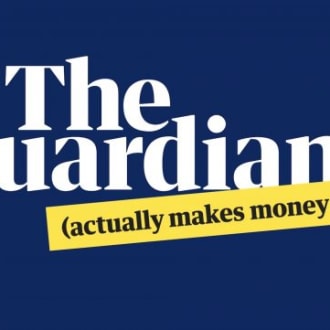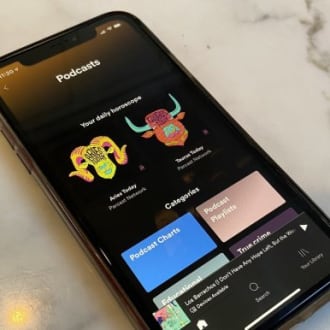The Best of Nieman Lab
20+ most popular Nieman Lab articles, as voted by our community.
Trending
These are currently making the rounds on Refind.
Nieman Lab on Fake News
Yes, it’s worth arguing with science deniers — and here are some techniques you can use » Nieman…
Plus: A fake news game that seems to inoculate players against fake news.
Wikipedia founder Jimmy Wales launches Wikitribune, a large-scale attempt to combat fake news
The crowd-funded news platform aims to combat fake news by combining professional journalism with volunteer fact checking: "news by the people and for the people."
Nieman Lab on Finance
Hype is a weaponized form of optimism
Want to know the true value of AI, NFTs, and other much-touted technologies? Ignore the news and look at the harsh judgment of the market.
Nieman Lab on Jeff Bezos
5 things publishers can learn from how Jeff Bezos is running The Washington Post » Nieman Journalism…
“I strongly believe that missionaries make better products. They care more. For a missionary, it’s not just about the business. There has to be a business, and the business has to make sense, but that’s not why you do it. You do it because you have something meaningful that motivates you.”
Newsonomics: The Washington Post’s ambitions for Arc have grown — to a Bezosian scale
It is increasingly the tech stack of choice for major news publishers. But now Arc wants to be the backbone of your digital advertising and subscriptions, too.
Nieman Lab on Journalism
Want to see what one digital future for newspapers looks like? Look at The Guardian, which isn’t…
It's a remarkable turnaround for an institution that's been losing money for what seems like forever, and there are lessons to be had for other digital publishers.
The New York Times has a course to teach its reporters data skills, and now they’ve open-sourced…
You can now VLOOKUP the SUMPRODUCT of the Times' training efforts. It's SORT of a TREND; even AVERAGE journalists can CONVERT data skills TO_DOLLARS.
Nieman Lab on Media
An incomplete history of Forbes.com as a platform for scams, grift, and bad journalism
That "rapper" accused of billions in crypto fraud was also a Forbes contributor. Is it finally time to move past the contributor network?
The enduring allure of conspiracies » Nieman Journalism Lab
Conspiracy theories seem to meet psychological needs and can be almost impossible to eradicate. One remedy: Keep them from taking root in the first place.
Nieman Lab on Newsroom
All the newsroom’s men: How one-third of “The Watergate Three” got written out of journalism history
Some reporters can build a career around their own personal brands. But doing great work requires an infrastructure, including a lot of talented people who don't get bylines. Barry Sussman — the…
54 newsrooms, 9 countries, and 9 core ideas: Here’s what two researchers found in a yearlong quest…
Shared by 154, including Mark Little, Simon Wüthrich, Kevin_Indig, Mark Kaigwa, Javi Cantón @javicanton@mas.to
Nieman Lab on Podcasting
Where did all the new podcasts go?
The number of new podcasts launched fell by nearly 80% between 2020 and 2022 — and seems to keep dropping. Has podcasting moved from gold rush to mature market?
Spotify is gaining a podcast audience quickly. But is it an audience that isn’t as interested in…
Data from Germany finds that Apple Podcasts users devote about 23 percent of their podcast listening to news shows — versus just 8 percent for Spotify users.
Nieman Lab on Subscription Business
One subscriber or 48,000 pageviews: Why every journalist should know the “unit economics” of their content »…
Shared by 234, including Mathias Menzl, Tom Connor, Kevan Lee 👋, Oscar MacDonald, AJ Ghergich
Habit formation: How The Wall Street Journal turned user-level data into a strategy to keep subscribers coming…
The Journal went on a quest to identify the user actions — an app download, an article share, repeat reading of a particular reporter’s stories — that can turn a new subscriber into a loyal one. Then…
Nieman Lab on Symbolism
Getting beyond symbolism to substance » Nieman Journalism Lab
Shared by 25, including Kathleen Searles, Nieman Foundation, Joshua Benton
Popular
These are some all-time favorites with Refind users.
“Puzzles pair well with reading the news”: Why news outlets are getting into games (again)
Shared by 756, including 👨✈️ AA-Admiral ⚓🚀🌌, Esther Schindler, Nieman Foundation, Jane
«Knight speaks openly about the Times’ desire to reach 15 million subscribers by the end of 2027, which can only be realistically engineered by investing in terrain outside of the media’s traditional contours.»
How Serena Williams forced sports journalists to cover tennis as more than a game
Early coverage sidestepped conversations about the unique kinds of gendered racism that a Black girl from a working-class California neighborhood might face on the professional tour.
«Practicing sports journalism by “sticking to sports” leaves reporters ill-equipped to cover news events that demand a wider lens.»
Nearly a third of new subscribers to news publications cancel in the first 24 hours
The same-day cancellation rate likely includes subscribers who only wanted access to one article, or who felt the full paid experience was lacking after a quick look around. New data suggests some…
Ukraine’s information war is winning hearts and minds in the West
Shared by 352, including Fabio Chiusi, Nieman Foundation, Tactical Tech
«Still, questions remain about the long-term viability of this strategy. Can Ukraine’s strategic use of information continue to offset Russia’s material advantages?»
How many bots are on Twitter? The question is tough to answer — and misses the point
Shared by 328, including Cyril Coste #DigitalTransformation, Nieman Foundation, Matt Navarra, Tactical Tech
What is Refind?
Every day Refind picks the most relevant links from around the web for you. is one of more than 10k sources we monitor.
How does Refind curate?
It’s a mix of human and algorithmic curation, following a number of steps:
- We monitor 10k+ sources and 1k+ thought leaders on hundreds of topics—publications, blogs, news sites, newsletters, Substack, Medium, Twitter, etc.
- In addition, our users save links from around the web using our Save buttons and our extensions.
- Our algorithm processes 100k+ new links every day and uses external signals to find the most relevant ones, focusing on timeless pieces.
- Our community of active users gets the most relevant links every day, tailored to their interests. They provide feedback via implicit and explicit signals: open, read, listen, share, mark as read, read later, «More/less like this», etc.
- Our algorithm uses these internal signals to refine the selection.
- In addition, we have expert curators who manually curate niche topics.
The result: lists of the best and most useful articles on hundreds of topics.
How does Refind detect «timeless» pieces?
We focus on pieces with long shelf-lives—not news. We determine «timelessness» via a number of metrics, for example, the consumption pattern of links over time.
How many sources does Refind monitor?
We monitor 10k+ content sources on hundreds of topics—publications, blogs, news sites, newsletters, Substack, Medium, Twitter, etc.
Can I submit a link?
Indirectly, by using Refind and saving links from outside (e.g., via our extensions).
How can I report a problem?
When you’re logged-in, you can flag any link via the «More» (...) menu. You can also report problems via email to hello@refind.com
Who uses Refind?
450k+ smart people start their day with Refind. To learn something new. To get inspired. To move forward. Our apps have a 4.9/5 rating.
Is Refind free?
Yes, it’s free!
How can I sign up?
Head over to our homepage and sign up by email or with your Twitter or Google account.






















Nieman Lab on Social Media
Can Mastodon be a reasonable Twitter substitute for journalists?
Adam Davidson: "I think we got lazy as a field, and we let Mark Zuckerberg, Jack Dorsey, and, god help us, Elon Musk and their staff decide all these major journalistic questions."
Post, the latest Twitter alternative, is betting big on micropayments for news
Shared by 135, including your #1 source for absurdist true crime 🐀 🐍👑 🌷, Matt Navarra, Carrie Brown, Nieman Foundation, Chris Messina